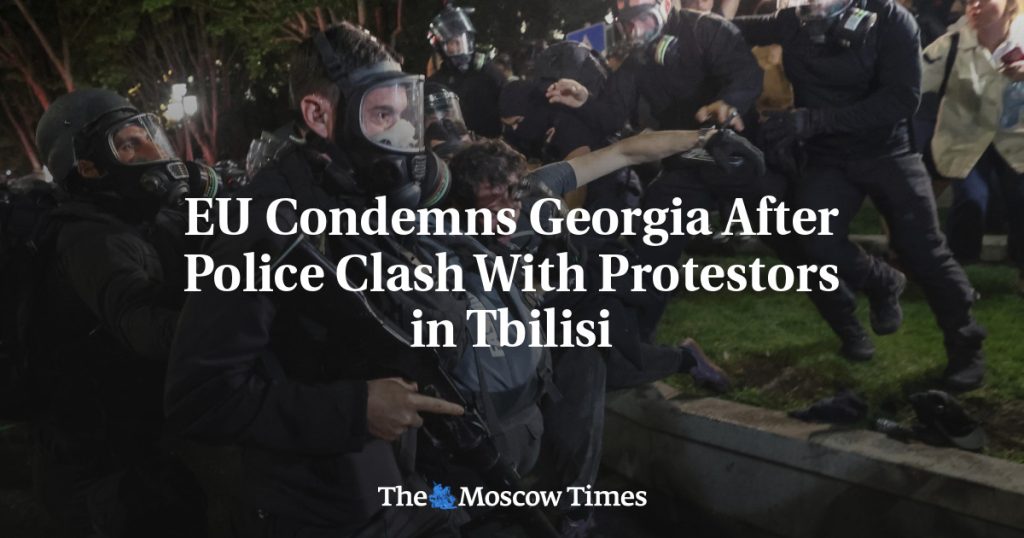The European Union condemned Georgia for the violent crackdown on protesters demonstrating against a controversial “foreign influence” bill. The clashes were the most violent since the protests began, with reports of riot police using tear gas, rubber bullets, and water cannons on demonstrators. Opposition politicians and journalists were among those beaten and arrested during the rally. The EU warned that passing the bill could harm Georgia’s ambitions to join the European Union, calling on authorities to respect the right to peaceful assembly.
The demonstrations come ahead of parliamentary elections in October, which are seen as a crucial test of democracy in Georgia, three decades after gaining independence from the Soviet Union. President Salome Zurabishvili condemned the police crackdown and called for an end to the use of disproportionate force against protesters. The country’s rights ombudsman called for an investigation into the violence. Protesters blocked key roads in the city and are expected to gather again, showing their determination to prevent the passing of what they call a “Russian law” that could jeopardize Georgia’s European future.
The bill in question requires independent NGOs and media organizations receiving more than 20% of their funding from abroad to register as organizations pursuing the interests of a foreign power. Last year, similar legislation was scrapped after mass street protests. Despite President Zurabishvili’s expected veto, the ruling party has enough votes to override it. Georgian Dream chairman, Bidzina Ivanishvili, defended the bill as a means to increase transparency of foreign funding for civil groups, arguing that non-transparent funding could lead to foreign intervention in Georgian government.
Georgia has been working to strengthen ties with the West, but Georgian Dream has faced accusations of aligning with Russia. The EU granted Georgia official candidate status in December, but outlined a series of reforms that need to be implemented before membership talks can begin, including judicial and electoral system reforms, political polarization reduction, press freedom enhancement, and limiting the power of oligarchs. The protests in Georgia reflect the country’s struggle between aligning with the West and maintaining its independence from outside influence.
The violent crackdown on protesters in Georgia drew condemnation from the European Union and has raised concerns about the country’s democratic future. The protests against the controversial bill highlight the tensions between those who want to strengthen ties with the West and others who fear influence from outside powers. The crackdown on demonstrators and journalists has sparked calls for an investigation into the police use of force. The coming parliamentary elections will be a crucial test of Georgia’s commitment to democracy and independence.
The ongoing protests in Georgia show the strong determination of the people to defend their European future and prevent the passage of legislation that they believe could undermine the country’s democratic values. The EU’s condemnation of the violence and warning about the potential impact on Georgia’s EU aspirations underscore the significance of the protests. The clashes between protesters and riot police reflect the deep divides within Georgian society over the country’s direction and relationship with Western and Eastern powers. As Georgia navigates its path towards the European Union, the outcome of the protests and parliamentary elections will be crucial in determining the country’s future.















